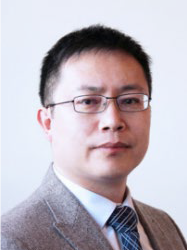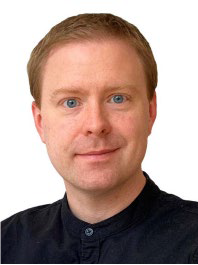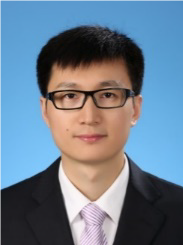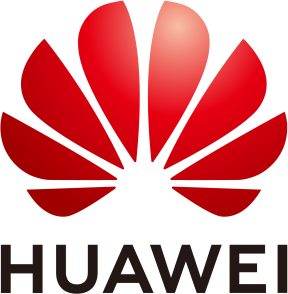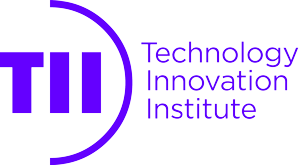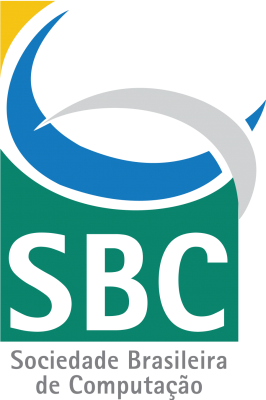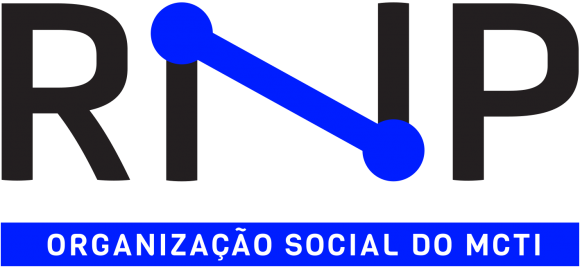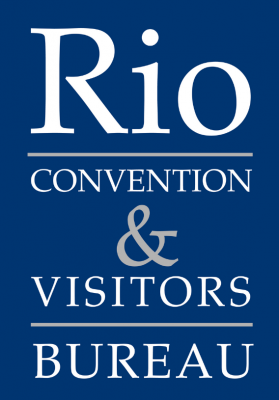Most of the Industry Program will be happening on-site and live streamed to remote attendees, while a small part will be only virtual. All presentations and panels will be available to be watched on-demand on the virtual platform from the conference dates.
LIST OF PANELS:
*All times are BRT (GMT-3)
IPA 16: FUTURE G RESEARCH PLATFORMS
MONDAY, DEC 5 8:00 - 9:30 / LOCATION: Americas I
Moderator: Serge Fdida, Sorbonne University, France
Abhimanyu Gosain, Northeastern University, USA
José F. de Rezende, Federal University of Rio de Janeiro, Brazil
Biography:
 Serge Fdida
Serge Fdida
Pr. Serge Fdida is a Professor with Sorbonne Université (formally UPMC) since 1995. His research interests are related to the future internet technology and architecture. He has been leading many research projects in Future Networking in France and Europe, notably pioneering the European activity on federated Internet testbeds. He established PlanetLab Europe in 2007 and the OneLab and FIT facilities. Serge Fdida has published numerous scientific papers, in addition to a few patents and one rfc. He was one of the founders of the ACM Conext conference, general chair of ACM Mobicom 2015 and IEEE Infocom 2019. He is a Distinguished ACM Member and an IEEE Senior member. Serge Fdida has also developed a strong experience related to innovation and industry transfer, - he was the co-founder of the Qosmos company, - one of the active contributor to the creation of the Cap Digital cluster in Paris and President of EIT Health France. Serge Fdida also contributed to the governance of Higher Research and Education institutions as Vice-President European affairs of UPMC (2014-2018) and VP International Development of Sorbonne Université (2018-2021). He also was a member of the LERU Policy Committee. He is currently coordinating SLICES, the first scientific instrument in Digital Sciences, supported by the EU ESFRI framework and is a co-founder of the Hopcast startup company.
%20Gosain.png) Abhimanyu (Manu) Gosain
Abhimanyu (Manu) Gosain
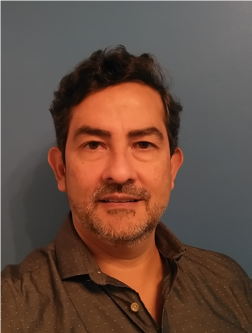 José F. de Rezende
José F. de Rezende
José F. de Rezende received the B.Sc. and M.Sc. degrees in Electronics Engineering from Universidade Federal do Rio de Janeiro (UFRJ) in 1988 and 1991, respectively. He received the Ph.D. degree in Computer Science from Université Pierre et Marie Curie in 1997. He is an associate professor at UFRJ and, since 2016, he is R&D assessor at Brazilian NREN (RNP). His current research interests are in mobile and software-defined networks, experimental platforms and performance evaluation.
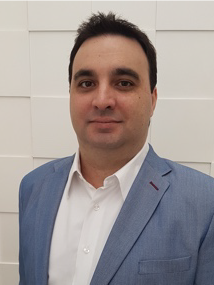 Gustavo Correa Lima
Gustavo Correa Lima
Gustavo Correa Lima - Wireless Solutions Manager, CPQD, Electrical Engineer with emphasis in Telecommunications from UNIFEI (2001), Master in Communications and Signal Processing from UFSC (2004) and Specialist in Regulation of Public Telecommunications Services from ANATEL (2005). He currently works as Wireless Communications Solutions Manager at CPQD and is a participating member of initiatives such as Conexis/5G Brasil Project, Anatel's Open RAN Workgroup, Open RAN @Brazil Program, Brazilian Forum on Internet of Things, Cigre-Brasil 5G study group and Telecom Infrastructure Project (TIP).
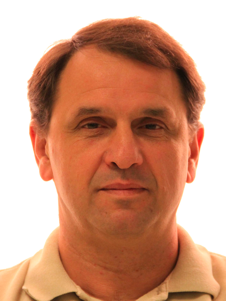 Ivan Seskar
Ivan Seskar
Ivan Seskar is the Chief Technologist at WINLAB, Rutgers University responsible for experimental systems and prototyping projects. He is currently the program director for the COSMOS project responsible for the New York City NSF PAWR deployment, the PI for the NSF GENI Wireless project, which resulted in campus deployments of LTE/WiMAX base stations at several US universities, and the PI for the NSF CloudLab deployment at Rutgers. He has also been the co-PI and project manager for all three phases of the NSF-supported ORBIT mid-scale testbed project at WINLAB, successfully leading technology development and operations since the testbed was released as a community resource in 2005 and for which the team received the 2008 NSF Alexander Schwarzkopf Prize for Technological Innovation. Ivan is a co-chair of the IEEE Future Networks Testbed Working Group, a Senior Member of the IEEE, a member of ACM and the co-founder and CTO of Upside Wireless Inc.
IPA 8: LOCALIZATION AND SENSING IN 5G-ADVANCED AND BEYOND - RESEARCH AND STANDARDISATION OUTLOOK
MONDAY, DEC 5 8:00 - 9:30 / LOCATION: Americas IV
Moderator: Mythri Hunukumbure, Samsung Electronics, United Kingdom (Great Britain)
Andrea Conti, DE and CNIT, University of Ferrara, Italy
David M Gutierrez-Estevez, Samsung Electronics, United Kingdom (Great Britain)
Sara Modarres Razavi, Ericsson Research, Sweden
Biography:
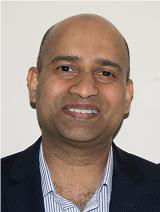 Mythri Hunukumbure
Mythri Hunukumbure
Dr. Mythri Hunukumbure is a Chief Engineer and a Project Lead at Samsung Electronics R&D Institute UK. He currently leads Samsung research in the LOCUS EU project and is also a work package leader for Localization enablers and a task lead for standardisation in this project. He has previously played similar roles in ONE5G and mmMAGIC EU projects. He also supports 3GPP standardization activities in SA2 and RAN2 in topics related to Localization and the use of AI/ML. In an industry career spanning over 15 years, he has contributed to and later led mobile communications research, standardisation and product development activities. Prior to joining Samsung UK, he was with Fujitsu Research Labs Europe. He has filed over 40 patents and has also published extensively in leading IEEE conferences and journals. He is the lead author of the recent book ‘The Technology and Business of Mobile Communications – An Introduction’, published by Wiley/IEEE. Mythri was the lead organizer and moderator for the Industry panel ‘Industry Roadmap to 5G: Standards Timeline and Spectrum Requirements’, previously at IEEE ICC 2016. He has also taken part in industry panels in ICC and Globecom workshops and in VTC from 2017 to 2019. He holds Ph.D. and M.Sc. degrees in wireless communications from University of Bristol, UK.
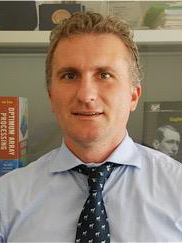 Andrea Conti
Andrea Conti
Andrea Conti is a professor and the founding director of the Wireless Communication and Localization Networks Laboratory at the University of Ferrara, Italy. He is frequent visitor to the Wireless Information and Network Sciences Laboratory at the Massachusetts Institute of Technology, where he presently holds the Research Affiliate appointment. His research interests involve theory and experimentation of wireless systems and networks including network localization, distributed sensing, adaptive diversity communications, and quantum information science. He is recipient of the HTE Puskás Tivadar Medal and co-recipient of the IEEE ComSoc’s Stephen O. Rice Prize in the field of Communications Theory and of the IEEE ComSoc’s Fred W. Ellersick Prize. He has served as editor for IEEE journals, as well as chaired international conferences. He has been elected Chair of the IEEE ComSoc’s Radio Communications Technical Committee. He is an elected Fellow of the IEEE and of the IET.
 David M. Gutierrez Estevez
David M. Gutierrez Estevez
David M. Gutierrez Estevez is Chief Engineer and 3GPP rapporteur at Samsung Electronics R&D Institute UK. David holds M.S. (2011) and Ph.D. (2014) degrees on wireless networks from the Georgia Institute of Technology in Atlanta, GA, USA. Prior to joining Samsung in 2016, David held positions at Huawei and Qualcomm in California, and several Fraunhofer Institutes in Germany. Since then, David first led several large-scale research projects within the 5GPPP ecosystem, and since 2019 he is a member of the Samsung 3GPP delegation in SA2. In Rel-18, he is leading the company’s 5G-Advanced efforts on system support for AI/ML services in the role of co-rapporteur, as well as system aspects of localization and ranging including the role of AI/ML and analytics. David’s publications accumulate 1400+ citations and is coinventor of 30+ patents and patent applications.
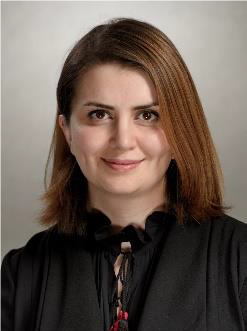 Sara Modarres Razavi
Sara Modarres Razavi
Sara Modarres Razavi is currently the Innovation Program Manager for Ericsson Cloud RAN. Before, she was Master Researcher and the project manager of 5G 3GPP RAN standardization project at Ericsson. She holds a Ph.D. in Infra-Informatics from Linköping University (2014) and MSc. in Hardware for Wireless Communication from Chalmers University of Technology (2008), Sweden. Her research focus has been on 4G, 5G and now 5G-Advanced cellular networks positioning, radio resource optimization and tracking area management. She contributes to several EU funded international 5G R&D projects including LOCUS and ESA funded project called HOP-5G. Sara Modarres Razavi’ s published contributions include 30+ peer reviewed articles and 100+ filed patents mainly in the area of positioning in wireless networks.
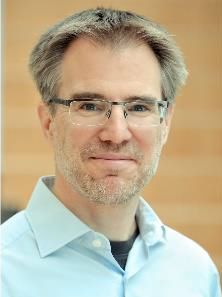 Joerg Widmer
Joerg Widmer
Joerg Widmer is Research Professor and Research Director of IMDEA Networks in Madrid, Spain. Before, he held positions at DOCOMO Euro-Labs in Munich, Germany and EPFL, Switzerland. His research interests are in wireless networking, with specific focus on multi-band location systems and millimeter-wave joint communication and sensing. Joerg has authored more than 200 conference and journal papers and three IETF RFCs, and holds 14 patents. He was awarded an ERC consolidator grant, the Friedrich Wilhelm Bessel Research Award of the Alexander von Humboldt Foundation, a Mercator Fellowship of the German Research Foundation, a Spanish Ramon y Cajal grant, as well as nine best paper awards. He is an IEEE Fellow and Distinguished Member of the ACM.
IPA 2: RECONFIGURABLE INTELLIGENT SURFACES (RIS) FOR 5G-ADVANCED AND 6G
MONDAY, DEC 5 14:00 - 15:30 / LOCATION: Americas I
Moderator: Nan Zhang, ZTE Corporation, China
Biography:
 Nan Zhang
Nan Zhang
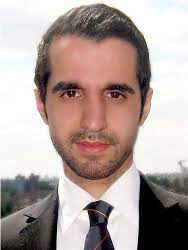 Arman Shojaeifard
Arman Shojaeifard
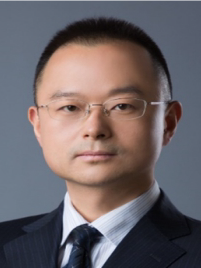 Xiaolin Hou
Xiaolin Hou
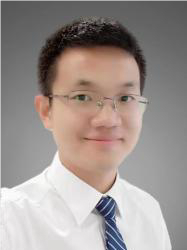 Qingqing Wu
Qingqing Wu
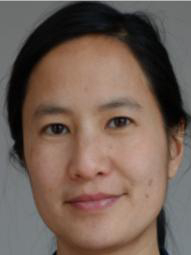 Dinh-Thuy PHAN HUY
Dinh-Thuy PHAN HUY
IPA 3: THE ROAD LESS TRAVELED BY: PATHWAYS TO ACCELERATE 6G CANDIDATE TECHNOLOGY AREAS USING PUBLIC-PRIVATE PARTNERSHIP TESTBEDS
MONDAY, DEC 5 14:30 - 15:30 / LOCATION: Americas IV
Moderator: Abhimanyu Gosain, Northeastern University, USA
Roger Nichols, Keysight Technologies, USA
Ali Khayrallah, Ericsson Inc., USA
Amitava Ghosh, Nokia Bell Labs, USA
Biography:
%20Gosain.png) Abhimanyu (Manu) Gosain
Abhimanyu (Manu) Gosain
 Roger Nichols
Roger Nichols
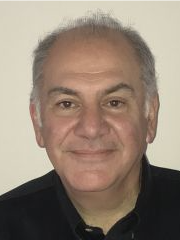 Ali Khayrallah
Ali Khayrallah
%20Ghosh.png) Amitabha Ghosh
Amitabha Ghosh
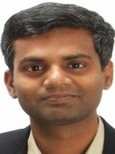 Kiran Mukkavilli
Kiran Mukkavilli
IPA 1: MEGA-CONSTELLATION-BASED NON-TERRESTRIAL NETWORK FOR 6G
MONDAY, DEC 5 16:00 - 17:30 / LOCATION: Americas I
Moderator: Wen Tong, Huawei Technologies Canada Co., Ltd., Canada
Panelists:
Björn Ottersten, University of Luxembourg, Luxembourg
Halim Yanikomeroglu, Carleton University, Canada
Rahim Tafazolli, University of Surrey, United Kingdom, Great Britain
Riccardo De Gaudenzi, European Space Agency (ESA), The Netherlands
Biography:
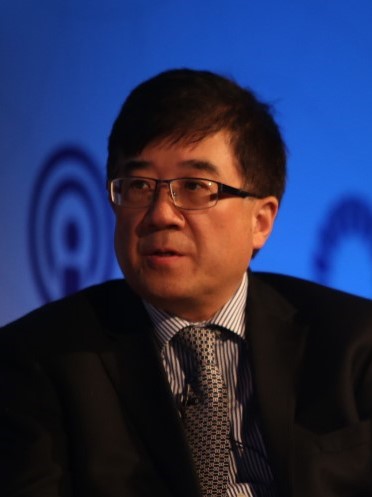 Wen Tong
Wen Tong
Dr. Wen Tong is the CTO, Huawei Wireless. He is the head of Huawei wireless research. In 2011, Dr. Tong was appointed the Head of Communications Technologies Labs of Huawei, currently, he is the Huawei 5G chief scientist and leads Huawei’s 10‐year‐long 5G wireless technologies research and development. Prior to joining Huawei in 2009, Dr. Tong was the Nortel Fellow and head of the Network Technology Labs at Nortel. He joined the Wireless Technology Labs at Bell Northern Research in 1995 in Canada. Dr. Tong is industry recognized leader in invention and standardization of advanced wireless technologies, he is the key contributor to 3GPP since its inception. Dr. Tong was elected as a Huawei Fellow and an IEEE Fellow. He was the recipient of IEEE Communications Society Industry Innovation Award for “the leadership and contributions in development of 3G and 4G wireless systems” in 2014, and IEEE Communications Society Distinguished Industry Leader Award for “pioneering technical contributions and leadership in the mobile communications industry and innovation in 5G mobile communications technology” in 2018. He is also the recipient of R.A. Fessenden Medal. For the past three decades, he had pioneered fundamental technologies from 1G to 5G wireless with more than 450 granted US patents. Dr. Tong is a Fellow of Canadian Academy of Engineering, and he also serves as Board of Director of WiFi Alliance. He is based in Ottawa, Canada.
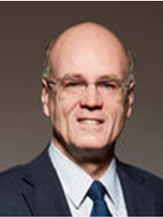 Björn Ottersten
Björn Ottersten
Professor Björn Ottersten received the M.S. degree in electrical engineering and applied physics from Linkoping University, Linkoping, Sweden and the Ph.D. degree in electrical engineering from Stanford University, Stanford, CA. Dr. Ottersten has held research positions at the Department of Electrical Engineering, Linkoping University, the Information Systems Laboratory, Stanford University, and the Katholieke Universiteit Leuven, Leuven. During 96/97 Dr. Ottersten was Director of Research at ArrayComm Inc, San Jose, California, a start‐up company based on Ottersten's patented technology. He has co‐authored papers that received an IEEE Signal Processing Society Best Paper Award in 1993, 2001, 2006, 2013, and 2019, and 8 IEEE conference papers receiving Best Paper Awards. In 1991 he was appointed Professor of Signal Processing at the Royal Institute of Technology (KTH), Stockholm. Dr. Ottersten has been head of the department for Signals, Sensors, and Systems at KTH and dean of the School of Electrical Engineering at KTH. He is currently Director for the Interdisciplinary Centre for Security, Reliability and Trust at the University of Luxembourg. Dr. Ottersten has been Digital Champion of Luxembourg, acting as an adviser to the European Commission and member of the boards of the Swedish Research Council and the Swedish Foundation for Strategic Research. Dr. Ottersten has served as Editor in Chief of EURASIP Signal Processing, and acted on the editorial boards of IEEE Transactions on Signal Processing, IEEE Signal Processing Magazine, IEEE Open Journal for Signal Processing, EURASIP Journal of Applied Signal Processing and Foundations and Trends in Signal Processing. He is currently Director of Technical Activities on the Board of EURASIP. Dr. Ottersten is a Fellow of the IEEE and EURASIP. He has received the IEEE Signal Processing Society Technical Achievement Award, the EURASIP Group Technical Achievement Award and has received the European Research Council advanced research grant twice. His research interests include signal processing, wireless communications, radar and computer vision.
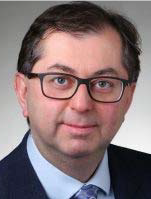 Halim Yanikomeroglu
Halim Yanikomeroglu
Halim Yanikomeroglu is a Professor in the Department of Systems and Computer Engineering at Carleton University, Canada. His primary research domain is wireless communications and networks. His research group has made substantial contributions to 4G/5G wireless technologies. His group’s current focus is the wireless infrastructure for the 6G and B6G era with terrestrial, aerial (HAPS and UAV), and satellite network elements. Dr. Yanikomeroglu’s extensive collaboration with industry resulted in about 40 granted patents. He is a Fellow of IEEE, Engineering Institute of Canada (EIC), and Canadian Academy of Engineering (CAE). He is an IEEE Distinguished Speaker for ComSoc and VTS. He has given over 150 keynotes, tutorials, and invited seminars in the last ten years. Dr. Yanikomeroglu is currently serving as the Steering Committee Chair of IEEE Wireless Communications and Networking Conference (WCNC). He is also a member of the IEEE ComSoc Conference Council and IEEE PIMRC Steering Committee. He served as the General Chair and Technical Program Chair of several IEEE conferences. He has also served in the editorial boards of various IEEE periodicals. Dr. Yanikomeroglu received several awards for his research, teaching, and service, including the IEEE ComSoc Fred W. Ellersick Prize (2021), IEEE VTS Stuart Meyer Memorial Award (2020), and IEEE ComSoc Wireless Communications TC Recognition Award (2018). He received best paper awards at IEEE ICC 2021 and IEEE WISEE 2021.
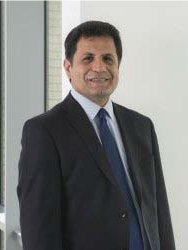 Rahim Tafazolli
Rahim Tafazolli
Rahim Tafazolli is Regius Professor of Electronic Engineering, Professor of Mobile and Satellite Communications, Founder and Director of 5GIC, 6GIC and ICS (Institute for Communication System) at the University of Surrey. He has over 30 years of experience in digital communications research and teaching. He has authored and co‐authored more than 1000 research publications and is regularly invited to deliver keynote talks and distinguished lectures to international conferences and workshops. Professor Tafazolli was awarded the 28th KIA Laureate Award in 2015 for his contribution to communications technology.
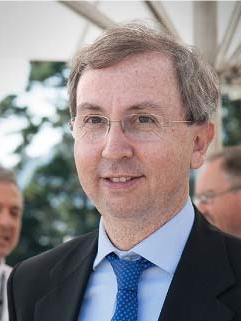 Riccardo De Gaudenzi
Riccardo De Gaudenzi
Riccardo De Gaudenzi (M'88‐‐SM'97) received his Doctor Engineer degree (cum Laude) in electronic engineering from the University of Pisa, Italy in 1985, a PhD from the Technical University of Delft, The Netherlands in 1999. From 1986 to 1988 he was with the European Space Agency (ESA), Stations and Communications Engineering Department, Darmstadt (Germany) where he was involved in satellite Telemetry, Tracking and Control (TT&C) ground systems design and testing. In 1988, he joined ESA’s Research and Technology Centre (ESTEC), Noordwijk, the Netherlands where he has been covering several technical and managerial positions inside the Directorate of Technology, Engineering and Quality. He is currently the Head of the ESA’s Electrical Engineering Department. The department covers radio‐frequency systems and payloads for navigation, telecommunication TT&C and Earth Observation, EEE components and microelectronics, data handling systems, power systems and energy sources, electromagnetic compatibility, space environments and their effects. He has been responsible for a large number of R&D activities for TT&C, Telecom and Navigation applications. In 1996 he spent one year with Qualcomm Inc., San Diego USA, in the Globalstar LEO project system group under an ESA fellowship. His current interest is mainly related with efficient digital modulation and multiple access techniques for fixed and mobile satellite services, synchronization topics, adaptive interference mitigation techniques and communication systems simulation techniques. He actively contributed to the development and the demonstration of the ETSI S‐UMTS Family A, S‐MIM, DVB‐S2, DVB‐S2X, DVB‐RCS2 and DVB‐SH standards. He is a Fellow of IEEE. He has published more than 140 scientific papers and own more than 28 patents. From 2001 to 2005 he has been serving as Associate Editor for CDMA and Synchronization for IEEE Transactions on Communications and Associate Editor for Journal of Communications and Networks. He is co‐recipient of the 2003 and 2008 Jack Neubauer Memorial Award Best Paper from the IEEE Vehicular Technology Society.
IPA 4: INTEGRATED SENSING AND COMMUNICATION (ISAC), NEW CORNER STONE FOR 6G
MONDAY, DEC 5 16:00 - 17:30 / LOCATION: Americas IV
Moderator: Peiying Zhu, SVP/Fellow, Huawei Technologies, Canada
Biography:
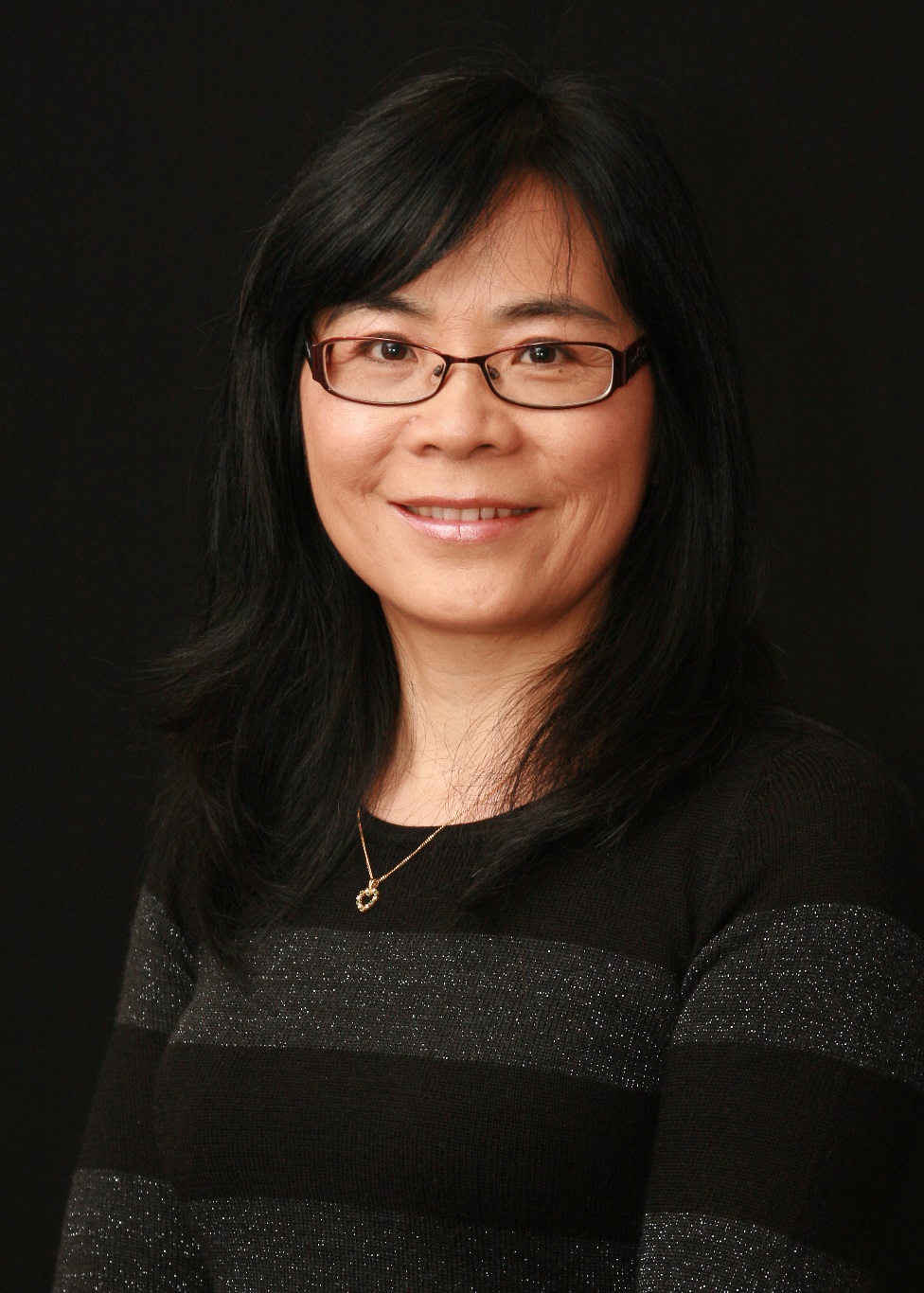 Peiying Zhu
Peiying Zhu
 Patrick Waldemar
Patrick Waldemar
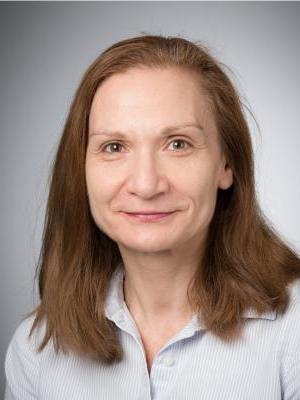 Natalia K. Nikolova
Natalia K. Nikolova
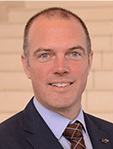 Maxime Flament
Maxime Flament
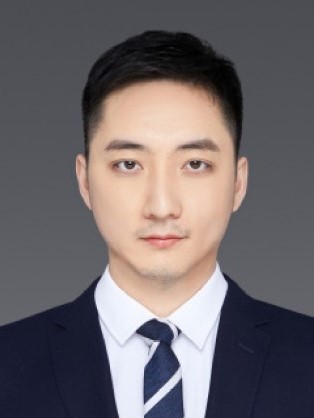 Fan Liu
Fan Liu
IPA 11: MEGATRENDS TO ROADMAPS TO STANDARDS: WIRELESS COMMUNICATIONS
TUESDAY, DEC 6 8:00 - 9:30 / LOCATION: Americas I
Moderator: William R. Tonti, IEEE Fellow, USA
 William R. Tonti
William R. Tonti
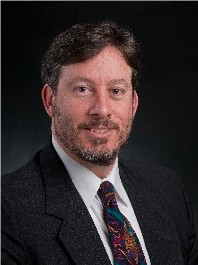 John P. Verboncoeur
John P. Verboncoeur
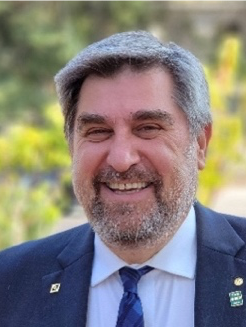 Dejan Milojicic
Dejan Milojicic
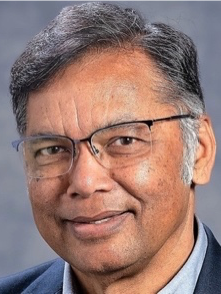 Rakesh Kumaris
Rakesh Kumaris
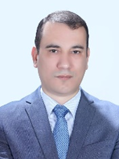 Anwer Al-Dulaimi
Anwer Al-Dulaimi
 Mehmet Ulema
Mehmet Ulema
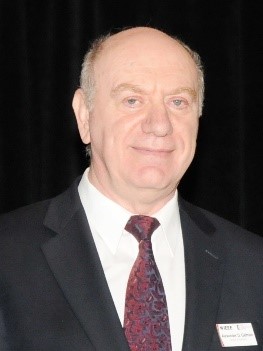 Alexander Gelman
Alexander Gelman
IPA 6: THE ROLE OF DIGITAL TWINS IN 6G
TUESDAY, DEC 6 8:00 - 9:30 / LOCATION: Americas IV
Moderator: Dylan McGrath, Keysight, USA
Biography:
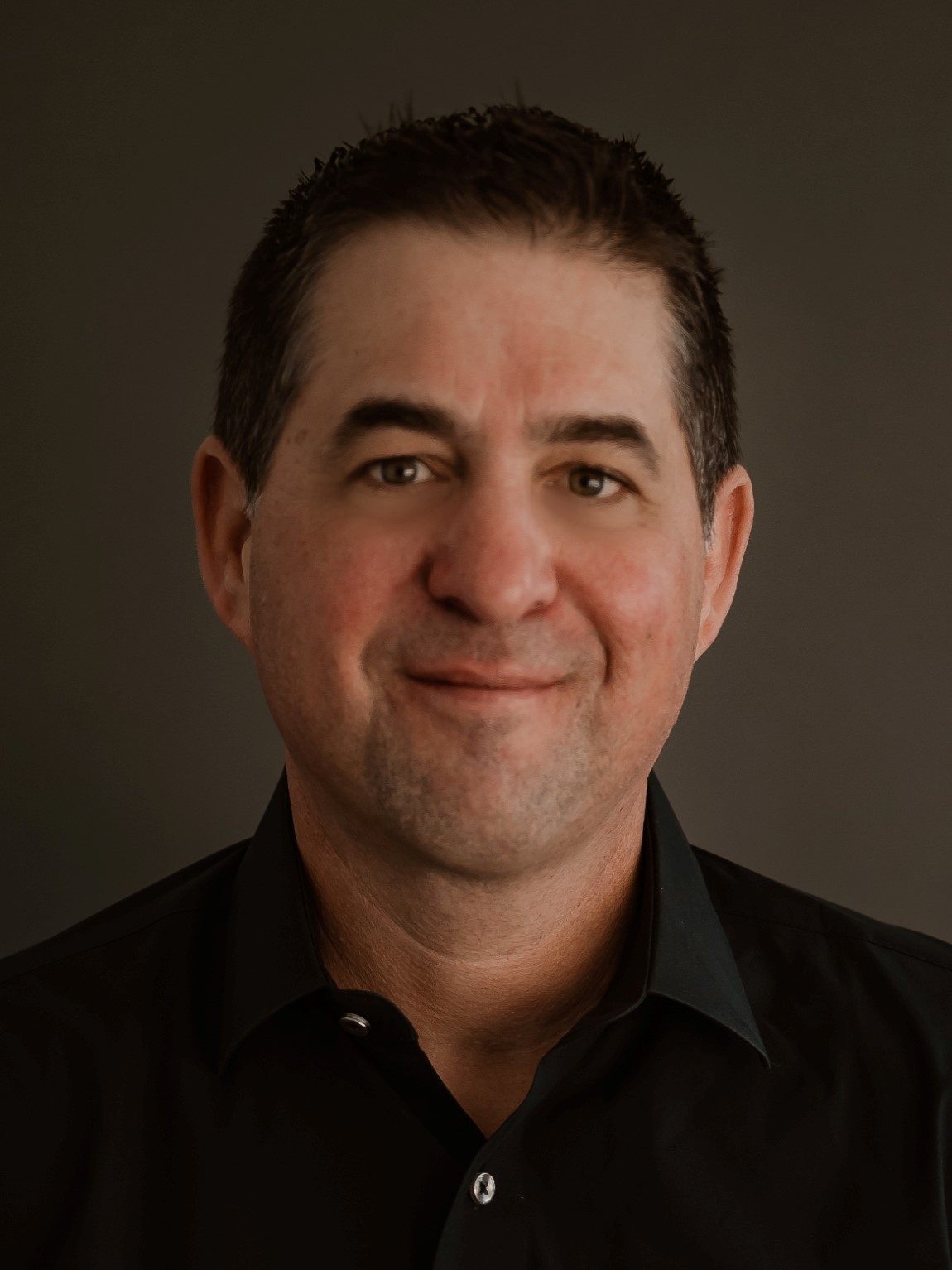 Dylan McGrath
Dylan McGrath
Dylan McGrath is a 25-year veteran of technology journalism, marketing, and public relations. McGrath spent more than 10 years at EE Times, eventually serving as editor-in-chief of the venerable 50-year old electronics industry trade publication. His career has also included stints at Electronic News, IHS Markit, and the Hoffman Agency. McGrath joined Keysight in 2019. He holds a BA in journalism from California State University, Sacramento, and an MA in English/create writing from San Francisco State University.
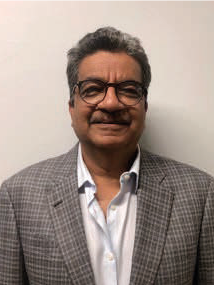 Rajive Bagrodia
Rajive Bagrodia
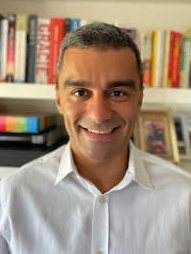 Alexander Linhares
Alexander Linhares
%20Di%20Martino.jpg) Catello Di Martino
Catello Di Martino
IPA 7: 6G RESEARCH & INNOVATION CLUSTER (6G-RIC): A PERSPECTIVE ON SUB-THZ COMMUNICATION AND SENSING
TUESDAY, DEC 6 14:00 - 15:30 / LOCATION: Americas I
Moderator: Slawomir Stanczak, Technische Universität Berlin & Fraunhofer Heinrich Hertz Institute, Germany
Biography:
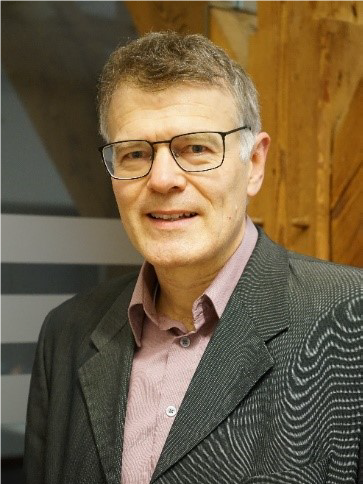 Robert Schober
Robert Schober
 Robert Baldemair
Robert Baldemair
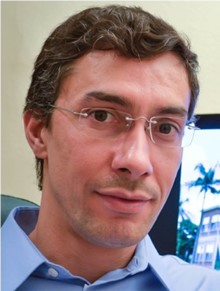 Luciano Leonel Mendes
Luciano Leonel Mendes
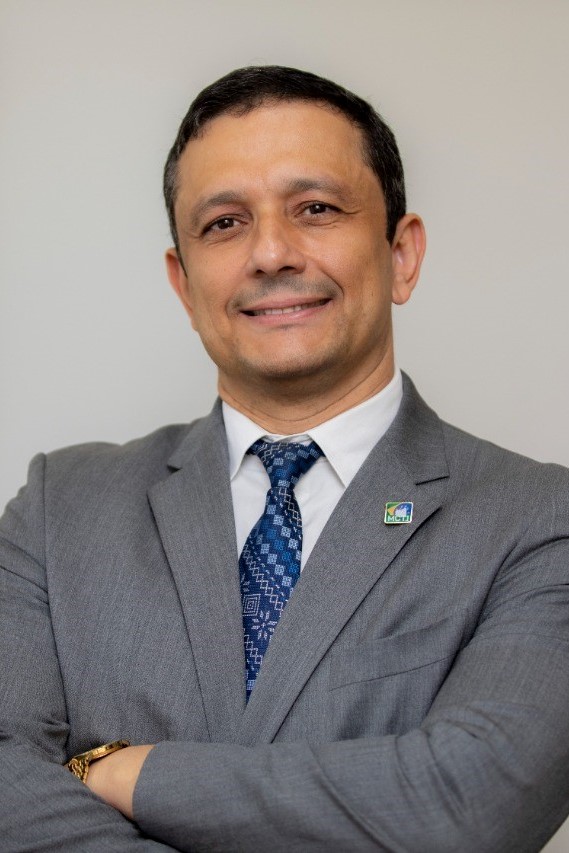 José Gustavo Sampaio Gontijo
José Gustavo Sampaio Gontijo
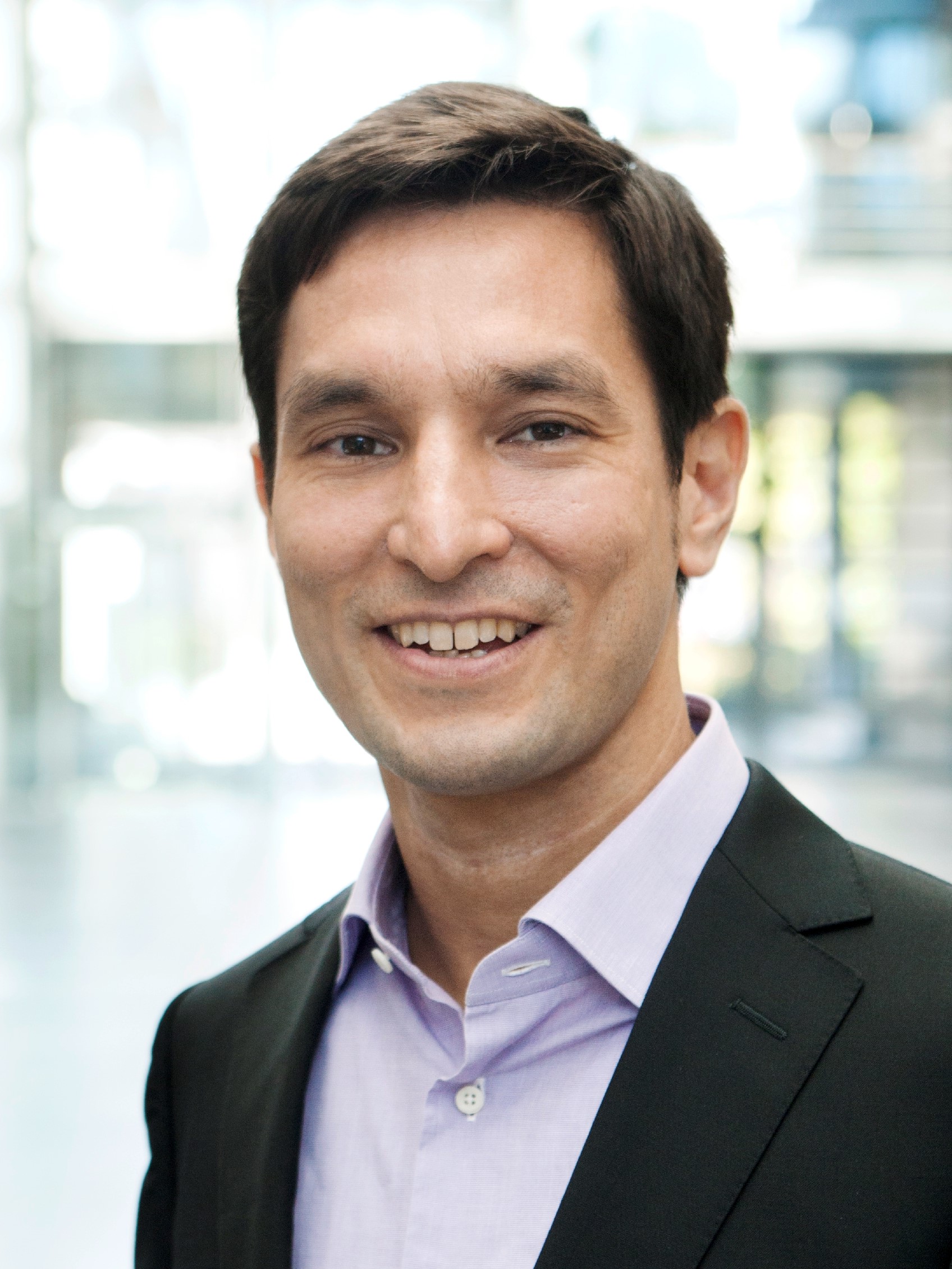 Taro Eichler
Taro Eichler
IPA 5: 6G MASSIVE MIMO: EVOLUTION OR REVOLUTION?
TUESDAY, DEC 6 14:00 - 15:30 / LOCATION: Americas IV
Moderator: Jianglei Ma, Technical VP, Huawei Technologies, Canada
Biography:
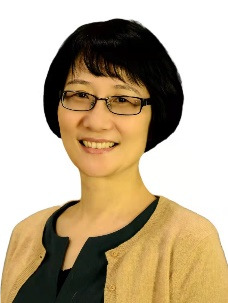 Jianglei Ma
Jianglei Ma
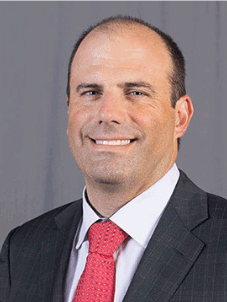 Robert W. Heath Jr.
Robert W. Heath Jr.
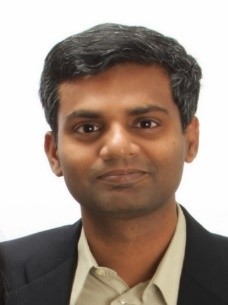 Kiran Mukkavilli
Kiran Mukkavilli
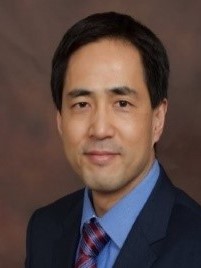 Charlie Jianzhong Zhang
Charlie Jianzhong Zhang
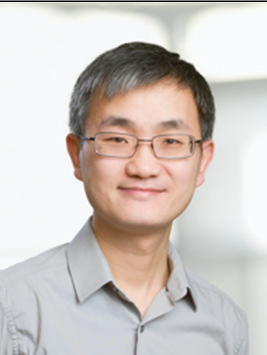 Wei Yu
Wei Yu
IPA 9: AI FOR 5G AND BEYOND
TUESDAY, DEC 6 16:00 - 17:30 / LOCATION: Americas I
Moderator: Liya Yuan, ZTE Corporation, China
Biography:
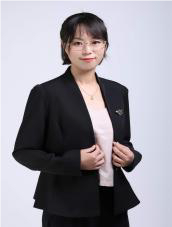 Liya Yuan
Liya Yuan
Liya Yuan is an open source & standardization engineer in ZTE corporation, focusing on the field of AI technology and its application in telecommunication network. She is currently the Technical Steering Committee (TSC) chair of Adlik, an AI open source project incubated in Linux Foundation AI Foundation. She also takes an active part in ITU-T standardization activities as the editor of several ITU-T specifications, and serves as WG3 chair in ITU-T Autonomous Network Focus Group.
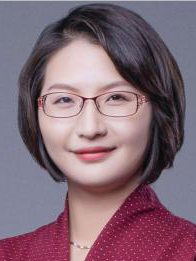 Lingli Deng
Lingli Deng
Lingli Deng, Doctor of Engineering (Chinese Academy of Sciences), is working as Director of Standards and Industrial Collaboration at AI &Intelligent Operation Center, China Mobile Research Institute (CMRI). Her major job respnosibilities include: 1.Develop and carry out the company’s strategic goal and industrial promotion program for Network Intelligence and Autonomous Networktransformation. 2.Host and operate network transformation and intelligent operation industrial initiatives, open source community, and write industry focus reports for the company's leadership. 3.Develop technology introduction planning; R&D of related prototype systems and testing and verification of open source products. 4. Formulate relevant international industry standards.
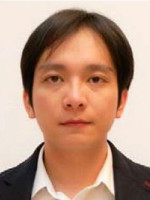 Leon Wong
Leon Wong
Leon Wong is the Research Collaboration and Engineering Lead for Research & Innovation Lab in Rakuten Mobile. He is also currently servingas chairman of ITU-T Focus Group of Autonomous Networks (FG-AN), established under ITU-T Study Group 13 - Future networks and emerging network technologies.
 Paul Patras
Paul Patras
Paul Patras is a co-founder and the CEO of Net AI, a pioneering networkintelligence company based in Scotland. He is also an Associate Professor in the School of Informatics at the University of Edinburgh, where he leads the Mobile Intelligence Lab. Dr Patras has spearheaded the use of deeplearning to solve problems in the mobile networking domain, which werepreviously considered intractable. With Net AI, his mission is to create themarket leading platform for decomposition and deep analysis of traffic across 5G and beyond 5G mobile networks.
 Yuntao Wang
Yuntao Wang
Yuntao Wang, Senior Engineer, Deputy Chief Engineer of Cloud Computing and Big Data Research Institute of China Academy of Information and Communication Technology(CAICT), Deputy Director of Internet Governance Research Center of CAICT, Head of Overall Teamof Artificial Intelligence Team of CAICT, Head of Overall Teamof Blockchain Team of CAICT, Vice Chairman of Young Experts Committeeof CAICT, Rapporteur of ITU-T Q5/16 of United Nations International Telecommunication Union, Postgraduate Tutor of Institute of Telecommunication Science and Technology, National Science and Technology expert (Ministry of Science and Technology), expert appointedby the State Administration of Radio, Film and Television, expert appointed by the Chinese Institute of Electronics, expert appointed by theEducation and Examination Center of the Ministry of Industry and Information Technology. His main research interests are focused on the research of new generation information and communication technologies such as artificial intelligence, blockchain, standardization and industrial development policy formulation. He has led the completion of three national key projects, participated in the formulation of more than ten international standards related to artificial intelligence, published one book, two translations, participated in the writing of three books, published morethan ten papers and four research reports. He has rich experience in international cooperation and has undertaken many bilateral and multilateral international cooperation counterpart liaison work.
IPA 10: ACCELERATING INDUSTRY VIA MISSION-CRITICAL NETWORKS: REAL-WORLD STORIES AND FORWARD-LOOKING APPS
TUESDAY, DEC 6 16:00 - 17:30 / LOCATION: Americas IV
Moderator: Catello Di Martino, Nokia Bell Labs, USA
Mario Azevedo, Vale, Brazil
Biography:
%20Di%20Martino.jpg) Catello Di Martino
Catello Di Martino
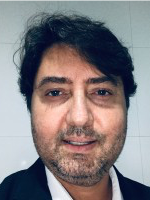 Mario Azevedo
Mario Azevedo
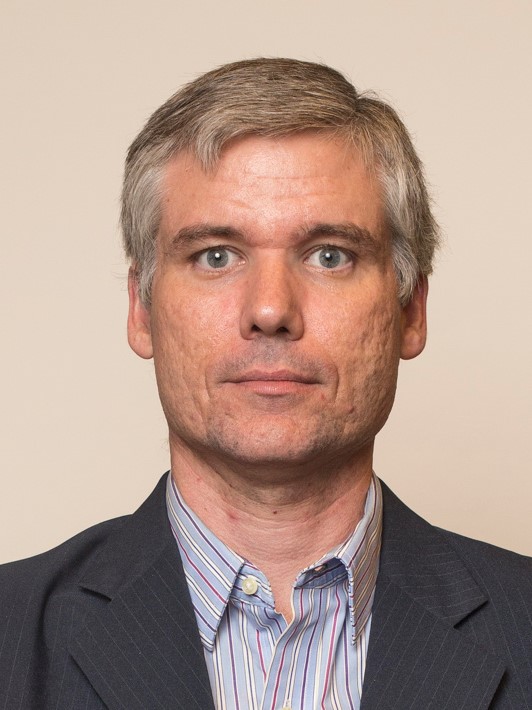 Ricardo Mendes
Ricardo Mendes
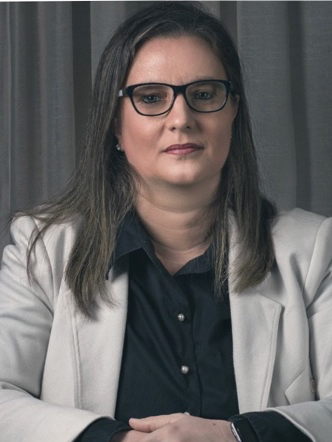 Fabiana Morgante de Alencar
Fabiana Morgante de Alencar
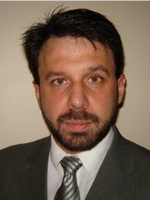 Marcelo Marcomini
Marcelo Marcomini
IPA 17: NETWORK AS A PLATFORM (NWAAP): OPPORTUNITIES AND CHALLENGES
WEDNESDAY, DEC 7 8:00 - 9:30 / LOCATION: Americas I
Moderator: Deepak Kataria, Ericsson, USA
Jitendra Manocha, Senior Portfolio Manager, Ericsson
Biography:
Deepak Kataria
Deepak Kataria has over 25 years' experience in data networking, cloud computing and telecom domains with unique distinction of having worked in technical leadership roles with AT&T Bell Labs, Lucent Technologies, Fujitsu, Agere Systems, LSI and HCL America. He co-founded IPJunction Inc in 2009 consulting telco clients on new solution opportunities, target markets, product management consulting and ecosystem partnerships. Currently, he serves as the Principal Solution Consultant for Ericsson working on AT&T projects. He was Chair of IEEE Princeton Central Jersey Section from 2020- 2022, General Chair of IEEE Sarnoff Symposium since 2015 and leads the IEEE FNI Group on AI/ML as Co-Chair. He holds B.S. in Electronics and Communications Engineering, and pursued M.S. and Ph.D. degrees in Electrical Engineering from Rutgers University. He completed Harvard's Emerging Leader's professional program on virtual leadership covering strategy, customer focus, corporate governance, and innovation.
 Satish Jamadagni
Satish Jamadagni
Satish Jamadagni is working as a Vice President in the Network Planning and Engineering division of Reliance Jio. He has over 20 years of industry experience in the telecom domain covering Devices, Networks, Platforms and Services. He has led teams contributing towards product development and delivery, develop standards and delivered essential patents for key organizations. He has been a member of the following industry bodies (past/present): Current Chair of Study Group ‐ Networks, TSDSI ; Co‐Chair of the Asia Regional Operators Group; Small Cell Forum (SCF) ; Active member of GTI (Global TDD Initiative) & 3GPP ‐Previously on the board of the International Multimedia Teleconferencing Consortium (IMTC) with responsibility towards VoLTE/RCS and WebRTC test standards. Mr. Jamadagni has over 120 granted/pending patents in the wireless devices/platform domain and over 25 publications in the Wireless/Telecom areas.
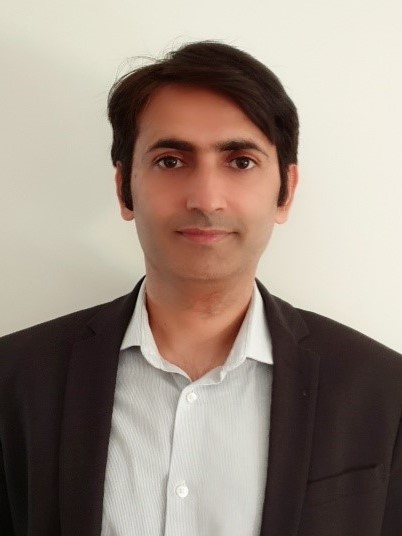 Jitendra Manocha
Jitendra Manocha
Jitendra Manocha is a Senior Portfolio Manager in the Business area of Cloud Software & Services. In his 20+ years of experience, he has held various leading positions in product management, R&D, and services. In recent years he has worked in the Business area of Cloud Software & Services AI/ML strategy, Edge computing, and Network as a Platform. He previously worked in 5G Analytics and 5G network exposure. He has experience in creating products from concepts to industrialization and scaling them to tangible businesses. He holds two M.Sc degrees from KTH Royal Institute of Technology in Stockholm, Sweden, in the areas of Information technology and Industrial Management and an engineering degree in Electronics & Communication.
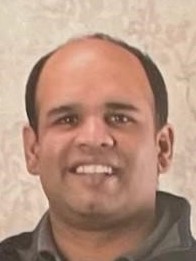 Venkatesh Ramaswamy
Venkatesh Ramaswamy
Dr. Venkatesh Ramaswamy is Chief Technologist at MITRE Labs in Bedford, Massachusetts where he currently leads technical innovation and R&D activities in 5G/xG technologies. He has more than 20 years of experience in the telecommunications industry and has held technical leadership positions at top technology companies, startups and research labs. He has published more than 50 peer-reviewed publications and patents, served as a TPC member for various conferences, and participated in several technical panels. He received his PhD in Electrical Engineering from the University of Mississippi.
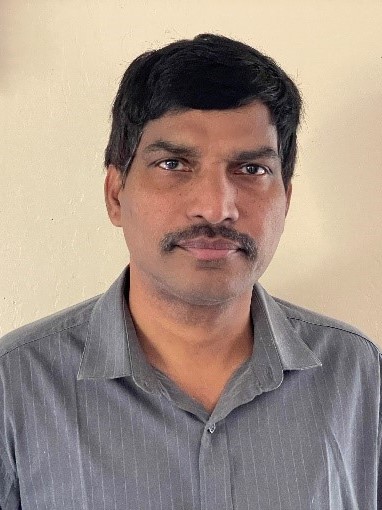 Srini Addepalli
Srini Addepalli
Srini Addepalli is a security and Edge computing expert with 25+ years of experience. Before joining Aryaka, Srini was at Intel, where he incubated multiple open-source edge computing and security initiatives including Service Mesh, cloud native SASE framework, Distributed HSM and Multi Edge/Cloud orchestration technologies. Before Intel, he held the Fellow position at Freescale and CTO position at Intoto Inc. As part of Intoto, which was acquired by Freescale, he is instrumental in leading the development of Gateway and UTM (Unified Threat Management) product lines. Srini has multiple patents in networking and security technologies
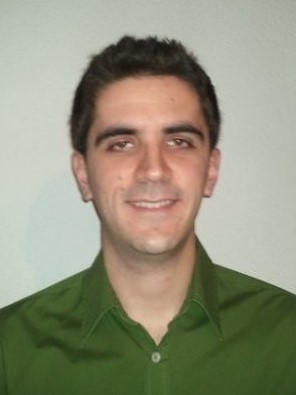 César Antón Mayoral
César Antón Mayoral
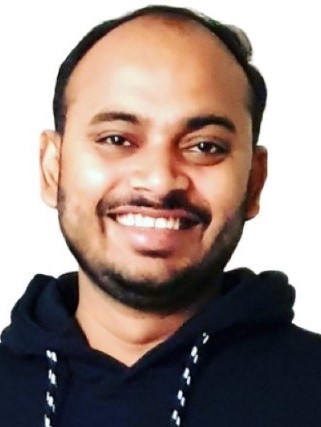 Santosh Kumar
Santosh Kumar
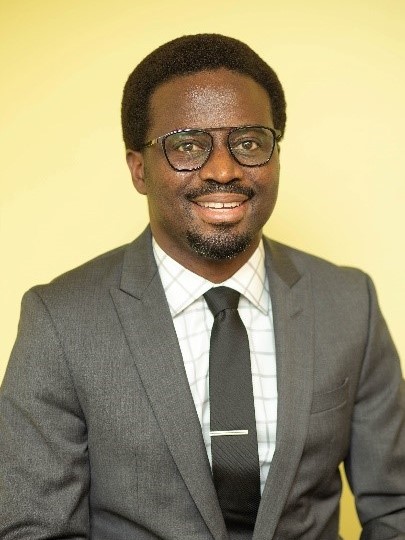 Babatunde Akindele
Babatunde Akindele
IPA 18: THE FUTURE OF SMART ECOSYSTEM EMPOWERED BY IOT COLLABORATIVE TECHNOLOGIES
WEDNESDAY, DEC 7 8:00 - 9:30 / LOCATION: Americas IV
Moderator: Fawzi Behmann, President TelNet management Consulting Inc.
Abstract:
IoT and several collaborative technologies of sensors, wearables, communications protocols and analytics are gradually becoming an integral part of smart ecosystem solutions. Such a solution can offer new classes of applications and services which were not feasible before. This talk will present vision of IoT disruptive technology and architectural evolution including collaborative technologies of 5G and Analytics impacting many markets. Evolution of 5G/6G & AI/ML empowered IoT will have greater impact in building future smart ecosystem for smart cities and communities.
The talk include the following:
a) Power and evolution of IoT disruptive technology
b) Smart connectivity and ecosystem solutions in key markets
c) Future Trends and Key Challenges
Biography:
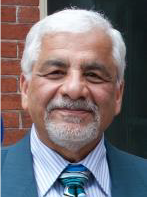 Fawzi Behmann
Fawzi Behmann
Fawzi is currently the founder and president of TelNet Management Consulting Inc. offering international professional services in the areas of technology trends; positioning and building smart networking ecosystem solutions in key markets. Prior, Fawzi held various executive and leadership positions with Tier 1 companies in the areas of communications and networking in Canada and US. He championed the development of Telecom Network Management systems, led efforts in rolling out product releases for network edge and core and marketing SoC product line and roadmap. Fawzi has been a keynote speaker and distinguished lecturer at several domestic and international conferences and events. He has several publications and co-authored book on "Collaborative Internet of Things for Future Smart Connected Life and Business" published by Wiley. Fawzi volunteered at IEEE, and is currently ComSoc distinguished Lecturer and North America Director for Regions 1-7 (serving 95 chapters and over 10,000 members) and BoG voting member. Fawzi championed the delivery of several conferences and summits and has has been the general chair for IEEE WCNC 2022 international wireless conference held in Austin (April 10-13) and also offered as hybrid format. Fawzi Co-Chair IEEE SA Transdisciplinary Framework working groups and contributor to IEEE Future Direction Initiatives. Fawzi is a voting member of IEEE Conference Committee. He chairs multiple joint chapters on Communications, signal processing, Computer, EMBS and Consumer technology. Prior, Fawzi was Region 5 conference committee chair and Central Texas chair. Fawzi received multiple awards including IEEE Communications Society NAB Exceptional Service Award (2020 and 2021); IEEE Communications Society North America Director for regions 1-7 (2020-2021); IEEE Leadership Section chair for Central Texas Section (2017-2018); IEEE USA Professional Leadership Award (2017); ComSoc Chapter Achievement Award (2021); IEEE ComSoc Chapter of the Year and Chapter Achievement Awards (2020, 2017, 2015); MGA Regional outstanding Member Award (2013, 2014 and 2015) and Freescale CEO Diamond Chip Award (2008). Fawzi has MBA, Masters in Computer Science, Bachelor in Science with honors in Mathematics with distinction.
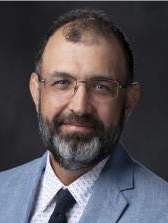 Semih Aslan
Semih Aslan
Dr. Semih Aslan is an Associate Professor of Electrical Engineering at Texas State University, where he joined in 2011. He previously worked as a Senior FPGA Design Engineer with Motorola and full-time instructor at ITT Technical Institute. At ITT Technical Institute, Dr. Aslan worked with minority students as a full-time instructor and assistant dean for over 10 years on the west side of Chicago. Dr. Aslan is the founding director of the System Modeling and Green Technology (SMART) Lab in the Ingram School of Engineering at Texas State. He currently advises graduate and undergraduate senior students on green energy, multi-processor system design and data analysis projects and has numerous publications.
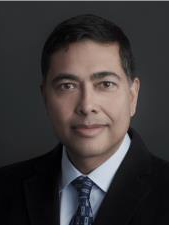 Narendra Mangra
Narendra Mangra
Narendra Mangra is the Principal at GlobeNet LLC, where he provides provides advisory and consulting services across industry, government, and academia. His diverse experience spans strategy development, smart city roadmap development, spectrum management, mobile network planning and system deployments, enterprise-wide modernization, program management, and education. He teaches graduate courses on 5G and project management with a focus on smart cities at the George Mason University. Narendra also leads several IEEE initiatives on technology roadmap development, smart cities architecture standards development, and industry connections on telehealth and the transdisciplinary framework with a focus on agriculture. These initiatives aim to systematically extend the reach and depth of agriculture, public safety, telehealth, smart cities, and rural development using a transdisciplinary approach that integrate ecosystems, networks, and governance functions. His current interests include comprehensive transdisciplinary frameworks, 5G and future networks, digital transformation, smart communities, and related ecosystems.
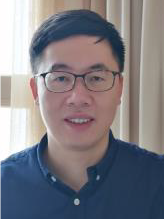 Hongyang Chen
Hongyang Chen
Hongyang Chen (M’08-SM’16) received the B.S. and M.S. degrees from Southwest Jiaotong University, Chengdu, China, in 2003 and 2006, respectively, and the Ph.D. degree from The University of Tokyo, Tokyo, Japan, in 2011. From 2011 to 2020, he was a Researcher with Fujitsu Ltd., Tokyo, Japan. He is currently a Senior Research Expert with Zhejiang Lab, China. He has authored or coauthored 100+ refereed journal and conference papers in the IEEE TSP, JSAC, TMC, WWWJ, TIFS, TCOM and has been granted 20+ PCT patents. His research interests include data-driven intelligent systems, graph machine learning, big data mining, and intelligent computing. He was the Editor of the IEEE Journals and a Symposium Chair or Special Session Organizer for some flagship conferences. He was a leading Guest Editor of the IEEE JOURNAL ON SELECTED TOPICS OF SIGNAL PROCESSING on tensor decomposition. Currently, he is an Associate Editor for the IEEE INTERNET OF THINGS JOURNAL. He has been selected as the Distinguished Lecturer of the IEEE Communication Society from 2021 to 2022. He is an adjunct professor with Hangzhou Institute for Advanced Study, The University of Chinese Academy of Sciences, China.
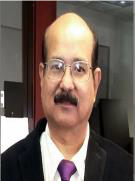 Bharat S. Rawal
Bharat S. Rawal
Dr Bharat S. Rawal is a full Professor & Chair of Computer Science at Capitol Technology University, USA. His research focuses on network security, cloud computing and security, blockchain, Big Data and analytical modeling, smart grid, and health informatics for the development of next-generation cyber defense and operation technologies. He has published peer-reviewed conference proceedings, and journal publications, and has two patents. He is a member of (ACM, IEEE, IET, etc.). He received his D.Sc degree in IT from Towson University Maryland. Previous Faculty Positions: Associate Professor at Gannon University, Pennsylvania State University, Duke University, Industry Served: Biochem Pharmaceutical Industries Ltd. Bashundhara Pharmaceutical Ltd. Coracias Advance Technologies LLC. Roles he served in industry: Chairman, President, CEO, and Director of Marketing.
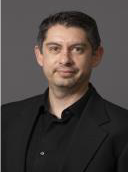 Damian Valles
Damian Valles
Damian Valles, Ph.D. Dr. Damian Valles is an Assistant Professor for the Ingram School of Engineering at Texas State University. He focuses on High-Performance Computing (HPC), Machine Learning (ML), and Embedded System implementations under the High-Performance Engineering (HiPE) research group. Dr. Valles received his B.S., M.S, and PhD. from The University of Texas at El Paso from the Electrical and Computer Engineering Department, focusing on Reconfigurable Processors and HPC research. Dr. Valles did a post-doc at Montana Tech as the HPC Application Scientist under the Computer Science department. He also worked as an HPC System Administrator in the Information Systems department and an adjunct position in the Computer Science department at Wake Forest University. He is currently a member of IEEE, ACM, ACM's SIGHPC, and SHPE.
IPA 12: IEEE 5G & BEYOND TESTBED: JOURNEY FOR INDUSTRY COLLABORATIONS
WEDNESDAY, DEC 7 14:00 - 15:30 / LOCATION: Americas I
Moderator: Anwer Al-Dulaimi, EXFO Inc., Canada
Biography:
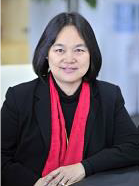 Chih-Lin I
Chih-Lin I
 Tracy Van Brakle
Tracy Van Brakle
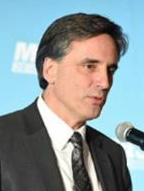 Benoit Pelletier
Benoit Pelletier
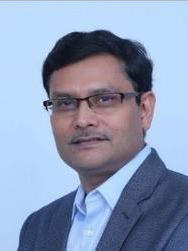 Aloknath De
Aloknath De
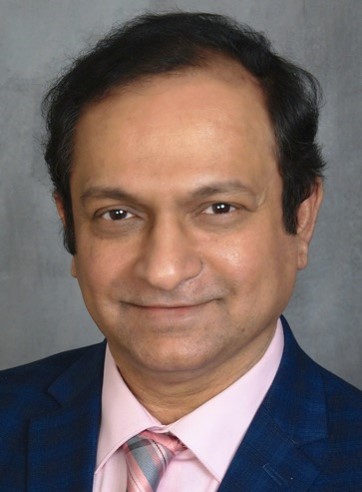 Ashutosh Dutta
Ashutosh Dutta
IPA 14: NGA SHAPING 6G VISION
WEDNESDAY, DEC 7 14:00 - 15:30 / LOCATION: Americas IV
Moderator: Ali Khayrallah, Ericsson Inc., USA
Biography:
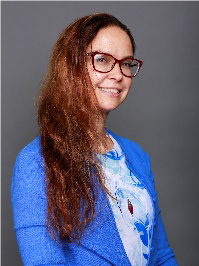 Muriel Médard
Muriel Médard
Muriel Médard is the NEC Professor of Software Science and Engineering in the Electrical Engineering and Computer Science (EECS) Department at MIT, where she leads the Network Coding and Reliable Communications Group in the Research Laboratory for Electronics at MIT. She obtained three Bachelors degrees (EECS 1989, Mathematics 1989 and Humanities 1991), as well as her M.S. (1991) and Sc.D (1995), all from MIT. Muriel is a Member of the US National Academy of Engineering (elected 2020), a Member of the German National Academy of Sciences Leopoldina (elected 2022), a Fellow of the US National Academy of Inventors (elected 2018), American Academy of Arts and Sciences (elected 2021), and a Fellow of the Institute of Electrical and Electronics Engineers (elected 2008). She holds Honorary Doctorates from the Technical University of Munich (2020) and from The University of Aalborg (2022). Muriel was co-winner of the MIT 2004 Harold E. Egerton Faculty Achievement Award and was named a Gilbreth Lecturer by the US National Academy of Engineering in 2007. She received the 2017 IEEE Communications Society Edwin Howard Armstrong Achievement Award and the 2016 IEEE Vehicular Technology James Evans Avant Garde Award. Muriel was awarded the 2022 IEEE Kobayashi Computers and Communications Award. She received the 2019 Best Paper award for IEEE Transactions on Network Science and Engineering, the 2018 ACM SIGCOMM Test of Time Paper Award, the 2009 IEEE Communication Society and Information Theory Society Joint Paper Award, the 2009 William R. Bennett Prize in the Field of Communications Networking, the 2002 IEEE Leon K. Kirchmayer Prize Paper Award, as well as nine conference paper awards. Most of her prize papers are co-authored with students from her group. Muriel has served as technical program committee co-chair of ISIT (twice), CoNext, WiOpt, WCNC and of many workshops. She has chaired the IEEE Medals committee, and served as member and chair of many committees, including as inaugural chair of the Millie Dresselhaus Medal. She was Editor in Chief of the IEEE Journal on Selected Areas in Communications and has served as editor or guest editor of many IEEE publications, including the IEEE Transactions on Information Theory, the IEEE Journal of Lightwave Technology, and the IEEE Transactions on Information Forensics and Security. Muriel was a member of the inaugural steering committees for the IEEE Transactions on Network Science and for the IEEE Journal on Selected Areas in Information Theory. She currently serves as the Editor-in-Chief of the IEEE Transactions on Information Theory. Muriel was elected president of the IEEE Information Theory Society in 2012, and serves on its board of governors, having previously served for eleven years. Muriel received the inaugural 2013 MIT EECS Graduate Student Association Mentor Award, voted by the students. She set up the Women in the Information Theory Society (WithITS) and Information Theory Society Mentoring Program, for which she was recognized with the 2017 Aaron Wyner Distinguished Service Award. She served as undergraduate Faculty in Residence for seven years in two MIT dormitories (2002–2007). Murielwas elected by the faculty and served as member and later chair of the MIT Faculty Committee on Student Life and as inaugural chair of the MIT Faculty Committee on Campus Planning. She was chair of the Institute Committee on Student Life. She was recognized as a Siemens Outstanding Mentor (2004) for her work with High School students. She serves on the Board of Trustees since 2015 of the International School of Boston, for which she is treasurer. Muriel has over sixty US and international patents awarded, the vast majority of which have been licensed or acquired. For technology transfer, she has co-founded CodeOn, for which she consults, and Steinwurf, for which she is Chief Scientist. Muriel has supervised over 40 master students, over 20 doctoral students and over 25 postdoctoral fellows.
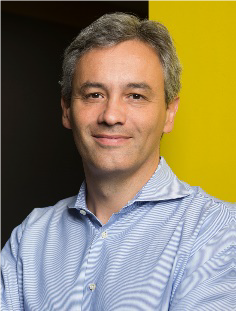 Tommaso Melodia
Tommaso Melodia
Tommaso Melodia is the William L. Smith Professor with the Department of Electrical and Computer Engineering at Northeastern University in Boston. He is also the Founding Director of the Institute for the Wireless Internet of Things and the Director of Research for the PAWR Project Office. He received his Laurea (integrated BS and MS) from the University of Rome - La Sapienza and his Ph.D. in Electrical and Computer Engineering from the Georgia Institute of Technology in 2007. He is an IEEE Fellow and recipient of the National Science Foundation CAREER award. Prof. Melodia is serving as Editor in Chief for Computer Networks. Prof. Melodia is a co-founder of 6G Symposium, and was the Technical Program Committee Chair for IEEE Infocom 2018. Prof. Melodia’s research has been funded by US industry and a number of Federal agencies including the US National Science Foundation, the Office of the Undersecretary of Defense, Air Force Research Laboratory, the Office of Naval Research, DARPA, the the Army Research Laboratory, the Department of Transportation, IARPA, and NASA.
 Venkatesh Ramaswamy
Venkatesh Ramaswamy
Dr. Venkatesh Ramaswamy is Chief Technologist at MITRE Labs in Bedford, Massachusetts where he currently leads technical innovation and R&D activities in 5G/xG technologies. He has more than 20 years of experience in the telecommunications industry and has held technical leadership positions at top technology companies, startups, and research labs. He has published more than 50 peer-reviewed publications and patents, served as a TPC member for various conferences, and participated in several technical panels. He received his PhD in Electrical Engineering from the University of Mississippi.
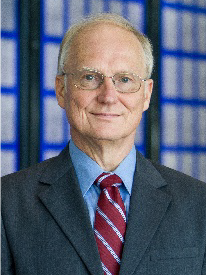 Edward G. Tiedemann, Jr.
Edward G. Tiedemann, Jr.
Dr. Edward G. Tiedemann, Jr. is an IEEE Fellow, a Qualcomm Fellow, and a Senior Vice President of Engineering of Qualcomm Technologies, Inc. He leads Qualcomm’s worldwide standardization and industry organization activities. Dr. Tiedemann was instrumental in the design and development of the TIA/EIA/IS-95 CDMA system, also called cdmaOne™. He has been active in every G since then. Dr. Tiedemann has almost 300 granted US patents and has participated in many papers, conference lectures, and industry panels. He is interested in multiple topics in communications including 5G and beyond, IoT, and V2x. Dr. Tiedemann holds the Ph.D. degree from MIT where he worked in the areas of queueing theory and communications networks. He holds the Master of Science degree from Purdue University and the Bachelor of Science degree from Virginia Polytechnic Institute and State University (Va Tech). Dr. Tiedemann currently is a member of the Next G Alliance Research Council, the Purdue University Semiconductor Degrees Leadership Board, the Advisory Board of the Purdue University School of Electrical and Computer Engineering, the Hong Kong University of Science and Technology (HKUST) School of Engineering Advisory Committee, and the International Advisory Panel of the Singapore Future Communications Research & Development Programme. He also serves as the IEEE Communications Society as Director, Standards Development. Dr. Tiedemann is past chairman of the Advisory Board of the College of Engineering at Virginia Polytechnic Institute and State University (Va Tech) and was General Chair of IEEE GLOBECOM 2015. He is also a member of the Board of Advisors of the Peabody Essex Museum and a member of the Board of Trustees of the Concord Museum. He has received numerous recognitions, including the Robert M. Walp Industry Humanitarian Award from the IEEE Communications Society.
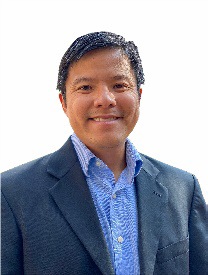 Ian C. Wong
Ian C. Wong
Dr. Ian C. Wong is presently the Director of RF and Wireless Architecture in the CTO office at VIAVI Solutions, where he is leading RF and wireless technology strategy, architectures, and standards. He is the co-chair of the Test and Integration Focus Group (TIFG) and the Next-Generation Research Platforms research stream in the O-RAN Alliance, and VIAVI’s representative at the full member and steering groups of the NextG Alliance. From 2009 – Aug 2020, he was with NI (formerly National Instruments) where his last position was Section Manager of Wireless Systems R&D where he led the development of real-time end-to-end 5G wireless test and prototyping systems, and managed the company’s 3GPP wireless standards and IP strategy. From 2007-2009, he was a systems research and standards engineer with Freescale Semiconductor where he represented Freescale in the 3GPP LTE standardization efforts. He is a senior member of the IEEE, was the Director of Industry Communities for IEEE Communications Society 2016-2019, and was the Industry Program Chair for IEEE Globecom 2014 in Austin. Dr. Wong co-authored the Springer book “Resource Allocation for Multiuser Multicarrier Wireless Systems,” numerous patents, standards contributions, and IEEE journal and conference publications. He was awarded the Texas Telecommunications Engineering Consortium Fellowship in 2003-2004, and the Wireless Networking and Communications Group student leadership award in 2007. He received the MS and PhD degrees in electrical engineering from the University of Texas at Austin in 2004 and 2007, respectively, and a BS degree in electronics and communications engineering (magna cum laude) from the University of the Philippines in 2000.
IPA 13: IEEE FUTURE NETWORKS ROADMAP TOWARDS 6G
WEDNESDAY, DEC 7 16:00 - 17:30 / LOCATION: Americas I
Moderator: Ashutosh Dutta, Johns Hopkins University Applied Physics Labs (JHU/APL), USA
Tim Lee, IEEE MTT-S, USA
Biography:
 Tim Lee
Tim Lee
Tim currently is a Boeing Technical Fellow at the Boeing Company Research and Technology with focus on advanced microelectronics for communications, sensing and data processing. His areas of interests include RF electronics, and advanced packaging mission systems. He is the co-chair of the IEEE Future Networks Initiative with focus on RF / millimeter-wave electronics and antennas for 5G and 6G applications. He was the 2015 IEEE Microwave Theory and Technology Society president. Currently he is serving on the IEEE Board of Directors and as the IEEE Region 6 Director.
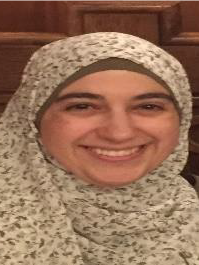 Eman Hammad
Eman Hammad
Dr. Eman Hammad is a cybersecurity & interdisciplinary professional focusing on trustworthy & resilient complex systems and emerging technologies. She is the director of the innovations in Systems Trust & Resilience (iSTAR) lab and professor of cybersecurity at Texas A&M University System. Recently, Eman was honored as one of Canada's Top 20 Women in Cybersecurity. Eman is actively involved with several IEEE initiatives and activities including Toronto ComSoc chapter, Future Networks INGR, P1950.1 smart cities standard, and Public Safety Technology Initiative. She delivered numerous invited talks and panels in academic and industrial conferences, chaired and co-chaired several conferences and workshops. Her service has been recognized by IEEE exceptional, chapter achievement, and exemplary service awards. Eman is an active advocate for diversity and inclusion in STEM and Cybersecurity.
 Narendra Mangra
Narendra Mangra
Narendra is a Principal at GlobeNet LLC and provides advisory and consulting services. across industry, government, and academia. His diverse experience spans strategy development, roadmap development, spectrum management, mobile network planning and system deployments, enterprise-wide modernization, program management, and education. He is an Adjunct Professor at the George Mason University. Narendra also leads several IEEE initiatives such as the Future Networks INGR, P1950.1 smart cities architecture standards development, Public Safety Technology Initiative, and the Telehealth and Transdisciplinary Framework Industry Connections. His current interests include comprehensive transdisciplinary frameworks, 5G and future networks, digital transformation, smart communities, and related ecosystems.
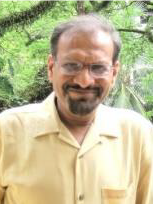 Sudhir Dixit
Sudhir Dixit
Sudhir Dixit is a Co-Founder and Senior Fellow at the Basic Internet Foundation in Oslo, Norway, and heads its US operations. He is also associated with the Academy of Finland Flagship 6G Project, led by the University of Oulu, Finland where he has been a Docent since 2010. From 2015 to 2017 he was the CEO and Co-Founder of a start-up, Skydoot, Inc. From 2009 to 2015, he was a Distinguished Chief Technologist and CTO of the Communications and Media Services for the Americas Region of Hewlett-Packard Enterprise Services in Palo Alto, CA, and the Director of Hewlett-Packard Labs India in Palo Alto and Bangalore. Before joining HP, he held various engineering and leadership positions at BlackBerry, Nokia, NSN and NYNEX (currently Verizon Communications). He has published nine books,and holds 21 U.S. patents. From 2010 to 2012, he was an Adjunct Professor of Computer Science at the University of California, Davis, and, since 2022 he is also a VAJRA Adjunct Professor at the Indian Institute of Science, Bangalore. A Life Fellow of the IEEE, IET and IETE, Dixit holds a Ph.D. from the University of Strathclyde, Glasgow, U.K. and an M.B.A. from the Florida Institute of Technology, Melbourne, Florida.
 Rose Hu
Rose Hu
Rose is a professor with the Electrical and Computer Engineering Department and Associate Dean for research of College of Engineering at Utah State University, where she also directs Communications Network Innovation Lab. Besides decades of academia experience, she has more than 10 years industrial R&D experience with Nortel, Blackberry, and Intel as a technical manager, a senior research scientist, and a senior wireless system architect, actively participating 4G technology development, standardization, system level simulation and performance evaluation. Rose is an IEEE Fellow, IEEE Communications Society Distinguished Lecturer, IEEE Vehicular Technology Society Distinguished Lecturer, NIST Communication Technology Laboratory Innovator 2020. She is currently a co-chair of IEEE International Network Generations Roadmap (INGR), IEEE ComSoc BoG as CIO, a voting member of IEEE ComSoc Conference Council, and site selection chair of GIMS standing committee.
IPA 15: ELECTROMAGNETIC INFORMATION THEORY: THEORETICAL FOUNDATIONS FOR THE MASSIVE MIMO EVOLUTION
WEDNESDAY, DEC 7 16:00 - 17:30 / LOCATION: Americas IV
Moderator: Tengjiao Wang, Huawei Technologies, China
Mérouane Debbah, Technology Innovation Institute, France
Cheng-Xiang Wang, Southeast University, China & Purple Mountain Laboratories, China
Emil Björnson, KTH Royal Institute of Technology, Sweden
Biography:



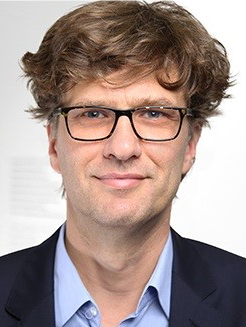
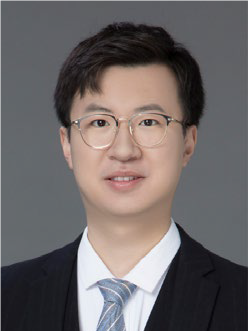
.jpg)
